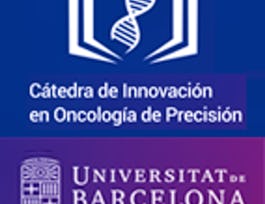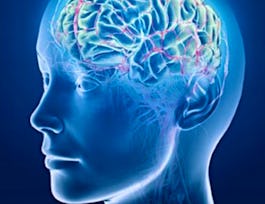The objective of this course is to give students the most up-to-date information on the biological, personal, and societal relevance of sleep. Personal relevance is emphasized by the fact that the single best predictor of daytime performance is the quality of the previous night's sleep. The brain actively generates sleep, and the first section of the course is an overview of the neurobiological basis of sleep control. The course provides cellular-level understanding of how sleep deprivation, jet lag, and substances such as alcohol, ,caffeine, and nicotine alter sleep and wakefulness. The second section of the course covers sleep-dependent changes in physiology and sleep disorders medicine. Particular emphasis will be placed on disorders of excessive sleepiness, insomnia, and sleep-dependent changes in autonomic control. Chronic sleep deprivation impairs immune function and may promote obesity. Deaths due to all causes are most frequent between 4:00 and 6:00 a.m., and this second section of the class highlights the relevance of sleep for preventive medicine. The societal relevance of sleep will be considered in the final section of the class. In an increasingly complex and technologically oriented society, operator-error by one individual can have a disastrous negative impact on public health and safety. Fatigue-related performance decrements are known to have contributed as causal factors to nuclear power plant failures, transportation disasters, and medical errors.



Sleep: Neurobiology, Medicine, and Society


Instructors: Ralph Lydic, Ph.D.
70,999 already enrolled
Included with
(787 reviews)
What you'll learn
Understand how sleep and the brain are connected.
Become familiar with major sleep disorders that impact daily life.
Explore the long-term negative health consequences of inadequate sleep.
Skills you'll gain
Details to know

Add to your LinkedIn profile
15 assignments
See how employees at top companies are mastering in-demand skills


Earn a career certificate
Add this credential to your LinkedIn profile, resume, or CV
Share it on social media and in your performance review

There are 12 modules in this course
This unit begins with a Course Overview video from Ralph Lydic, Ph.D., followed by the first portion of the Neurobiology of Sleep and Wakefulness lecture, delivered by Helen Baghdoyan, Ph.D. PLEASE NOTE: Only the Course Overview video, and the Getting Started and Syllabus readings are required for students who have chosen to engage in the Standard Track portion of the course content. Standard track students may also bypass all content in units 2, 3, and 4, and instead move directly to unit 5 after viewing the Course Overview video.
What's included
6 videos4 readings1 assignment
Unit 2 continues the lecture from Helen Baghdoyan, Ph.D. on the Neurobiology of Sleep and Wakefulness. PLEASE NOTE: This content is only required for students who have chosen to pursue the Honors Track certification.
What's included
5 videos2 assignments
Unit 3 continues the Neurobiology section of the content with a lecture from Victoria Booth, Ph.D. on the Mathematical Modeling of Sleep-Wake Regulation. PLEASE NOTE: This content is only required for students who have chosen to pursue the Honors Track certification.
What's included
10 videos1 reading2 assignments
Unit 4 closes out the Neurobiology section with a lecture from Chiara Cirelli, Ph.D. on Molecular Biology and the Genetics of Sleep. PLEASE NOTE: This content is only required for students who have chosen to pursue the Honors Track certification.
What's included
6 videos2 assignments
Unit 5 marks the beginning of the Medicine section of the course. This unit features an overview of Sleep Medicine from Ronald Chervin, M.D.
What's included
7 videos1 reading1 assignment
Unit 6 continues the Medicine section of the course, featuring a lecture from Helena Schotland, M.D. exploring how Disordered Sleep and Breathing may alter Cardiovascular Health.
What's included
3 videos1 reading1 assignment
Unit 7 further continues the Medicine section of the course with a lecture on the relationship of Sleep and Psychiatric Disorders from Eric Nofzinger, M.D
What's included
8 videos1 reading1 assignment
Unit 8 further continues the Medicine section of the course with a lecture from Christopher Drake, Ph.D. on the causes and consequences of Insomnia.
What's included
4 videos1 reading1 assignment
Unit 9 further continues the Medicine section of the course with a lecture from J. Todd Arendt, Ph.D. on the range of available treatments for Insomnia.
What's included
9 videos1 assignment
Unit 10 brings the Medicine section of the course to a close with a lecture on Sleep and Anesthesia delivered by George Mashour, M.D.
What's included
4 videos1 assignment
Unit 11 kicks off the Society section of the course with a lecture on Circadian Rhythms, Sleep, and Health from Theresa Lee, Ph.D.
What's included
5 videos1 reading1 assignment
Unit 12 wraps up the final section of the course and the Society section of the content with a lecture on Daytime Sleepiness and Sleep Need by Thomas Roth, Ph.D.
What's included
4 videos4 readings1 assignment
Instructors


Offered by
Recommended if you're interested in Basic Science

University of Michigan

Universitat de Barcelona

Ludwig-Maximilians-Universität München (LMU)

Duke University
Why people choose Coursera for their career




Learner reviews
Showing 3 of 787
787 reviews
- 5 stars
86.04%
- 4 stars
11.16%
- 3 stars
2.03%
- 2 stars
0.63%
- 1 star
0.12%
New to Basic Science? Start here.

Open new doors with Coursera Plus
Unlimited access to 7,000+ world-class courses, hands-on projects, and job-ready certificate programs - all included in your subscription
Advance your career with an online degree
Earn a degree from world-class universities - 100% online
Join over 3,400 global companies that choose Coursera for Business
Upskill your employees to excel in the digital economy
Frequently asked questions
Access to lectures and assignments depends on your type of enrollment. If you take a course in audit mode, you will be able to see most course materials for free. To access graded assignments and to earn a Certificate, you will need to purchase the Certificate experience, during or after your audit. If you don't see the audit option:
The course may not offer an audit option. You can try a Free Trial instead, or apply for Financial Aid.
The course may offer 'Full Course, No Certificate' instead. This option lets you see all course materials, submit required assessments, and get a final grade. This also means that you will not be able to purchase a Certificate experience.
When you purchase a Certificate you get access to all course materials, including graded assignments. Upon completing the course, your electronic Certificate will be added to your Accomplishments page - from there, you can print your Certificate or add it to your LinkedIn profile. If you only want to read and view the course content, you can audit the course for free.
You will be eligible for a full refund until two weeks after your payment date, or (for courses that have just launched) until two weeks after the first session of the course begins, whichever is later. You cannot receive a refund once you’ve earned a Course Certificate, even if you complete the course within the two-week refund period. See our full refund policy.

